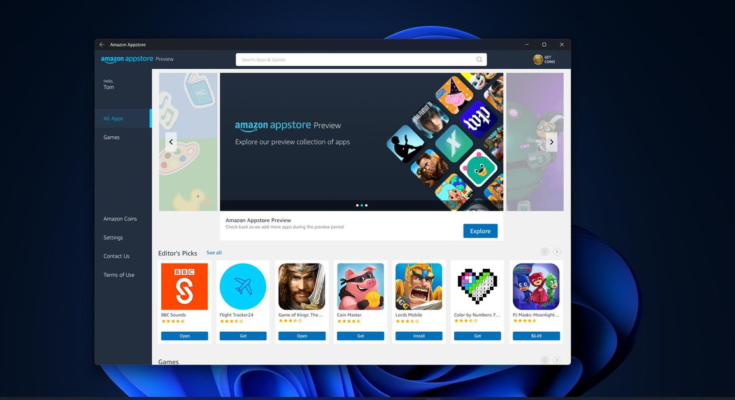It seems like Microsoft isn’t resting on its laurels when it comes to the system that lets Windows 11 run Android apps: on Friday, the company announced an update that upgrades the version of Android running on your computer and helps make the apps feel more at home running on a PC. The Windows Subsystem for Android update is currently only available to test for Windows Insiders, but that’s probably a good thing for reasons we’ll touch on in just a moment.
The headlining improvement is an update to the version of Android that underpins Windows’ ability to run mobile apps. The current public release seems to be using Android 11 (based on some prodding I did using developer tools), but the version that Microsoft is testing is running Android 12.1, aka Android 12L. What that effectively means is that, if you’ve got anything other than a recent Pixel, your computer may be running a newer version of Android than your phone.
The update also brings improvements to how Android apps integrate with Windows. Pop-up messages from apps may show up as Windows notifications now, and the taskbar will be able to show if an Android app is accessing your microphone or location. The company also says that Android apps should behave better after you wake your computer up from standby. Instead of restarting, they should just resume from where they left off.
Microsoft also says it’s completely redesigned the settings app that you use to manage the Windows Subsystem for Android, grouping settings together and providing an “all-around cleaner user experience.” It’s also made various improvements to how Android apps can access your computer’s camera and has even improved the networking capabilities so you can set up smart home devices using an Android app running on your computer.
While these all sound like big improvements, you may want to hold off on trying to use the feature yourself at the moment. For one, it’s currently being rolled out to the Dev channel, which is the most bleeding-edge of the Windows Insider rings. (Meaning you’re more likely to run into bugs and crashes outside of running Android apps.) To that point, Microsoft warns that the upgrade to Android 12.1 “may cause some apps to fail to launch.” Perhaps that’s not super surprising given how rough the Android 12 rollout has been on phones. The company says it’s working with partners “to address these issues as soon as possible,” so hopefully it’ll get straightened out before it reaches consumers.
Even if the update isn’t quite fully baked yet, it’s good to see that Microsoft is actually giving some love to the Android apps on Windows feature. It could’ve easily introduced it as something cool coming with Windows 11, launched it, and considered the project more or less finished. The fact that we’re seeing major changes to it, though, makes it seem like Microsoft is committed to the feature for the time being. If it really wants to have a first-class experience, though, it will need to work out a much easier way to download apps from the Google Play Store, rather than the far more limited Amazon Appstore’s selection.



